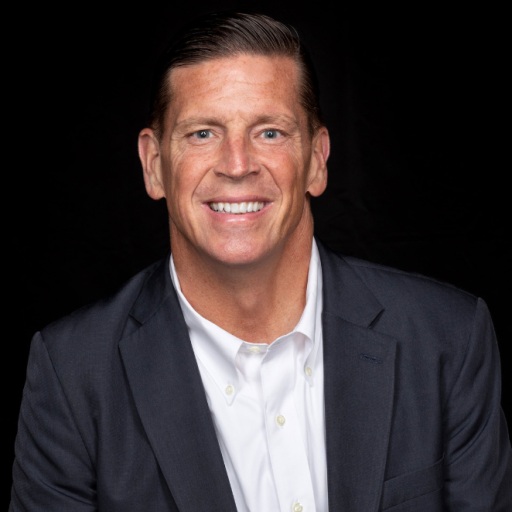Steve McClatchy sat down with TMJ to discuss the gravity of what it means to be a leader.
By Nicole Needles
STEVE MCCLATCHY is a keynote speaker and author of the award-winning New York Times bestseller “Decide: Work Smarter, Reduce Your Stress, and Lead by Example.” McClatchy has helped numerous organizations thrive through strategic and empathetic leadership practices. His passion for people shines through in his words and career.
His newest book, “Leading Relationships: Build Meaningful Connections, Eliminate Conflict, and Radically Improve Engagement” was released earlier this year. In addition, McClatchy will be a speaker at the 2025 MHEDA Convention. We sat down with McClatchy to learn his biggest lessons in leadership.
TMJ: Can you give a brief overview of
your career journey and where you are today?
McClatchy: When people ask what I do, I say, “I deliver speeches and workshops on leadership, relationships and sales.” Behind that is my work with clients like Google, Disney, Under Armour, John Deere, Subaru and various teams in the NFL, NBA and MLB. I’ve been quoted in The Wall Street Journal, WebMD Magazine and Oprah Magazine and have appeared on ABC, NBC, CBS, FOX, the Today Show and Squawk Box.
My first book, “Decide: Work Smarter, Reduce Your Stress, and Lead by Example,” reached number two on the New York Times bestseller list. It’s also an Amazon and USA Today bestseller, published in 11 languages worldwide.
How did I get here? If you asked me growing up what I wanted to be, I always said a teacher. My second oldest sister was a teacher, and I wanted to be just like her. I grew up as one of 12 children, and being the eleventh, I had no trouble talking to people older than me. So, I transitioned from teaching children to teaching adults, and I actually found I enjoy teaching adults more. I even thought about returning to the education system in my later years.
My first job out of college was with Pillsbury. It was at a workshop there that I realized teaching can take place in the corporate world, which set me on the path to becoming a speaker and trainer in the industry.
TMJ: What changes have you witnessed during
your tenure, and what has stayed the same?
McClatchy: Technology has obviously transformed how we communicate, work and meet customer expectations. It also reshaped competition and expanded the global landscape.
However, the purpose of work hasn’t changed. Customers still want to solve problems by saving time and receiving higher quality than they could achieve themselves. For example, I bought this shirt because I didn’t have the time to make one myself – I’m purchasing someone else’s time and expertise.
What people truly want when they spend money is quality, speed and value at the lowest cost. This has been a constant in the business world. While technology and processes may evolve to streamline these objectives, the core goal of providing quality, speed and cost-effectiveness remains unchanged.
Leadership’s role is to steer an organization toward these goals while adapting to changing methods of achieving them.
TMJ: In three words, how would you
describe your leadership style?
McClatchy: The Golden Rule.
TMJ: What was one of the biggest challenges
you ever faced, and how did you address it?
McClatchy: As a speaker and trainer, the pandemic was a big challenge, but not the biggest. The biggest challenge I faced was with my new book, “Leading Relationships.” I’ve been working on this book for 24 years.
I didn’t want to write a collection of best practices. I wanted to create an original approach to relationships that would stand out as a true game changer. After 24 years, I feel excited and relieved to have achieved that goal. It took years of dedication to make sure this book would resonate with readers and truly offer something different. It’s not just another relationship book – it’s a new approach to leadership in relationships.
TMJ: What advice would you give
to an emerging leader?
McClatchy: Practice personal leadership first. Leadership, to me, is all about one word: improvement. This means leading yourself before you lead others. Set goals and commit to improving yourself every day.
When you lead yourself well – when you set personal goals and achieve them – you build the foundation needed to lead others and manage relationships effectively. Following through on commitments, especially the ones you make to yourself, prepares you to follow through on commitments to others.
If you can’t keep the promises you make to yourself, how can you expect to keep promises to others? Leading yourself is one of the most overlooked aspects of leadership, but it’s the foundation for all other leadership skills.
TMJ: What is the best business advice
you ever received and from whom?
McClatchy: When I worked at Pillsbury, I had a mentor who gave me a simple yet powerful piece of advice: “Ask your customers how they would like to be sold to, and you’ll know how to sell to them.”
It seemed so obvious, but it has shaped my approach to customer relationships throughout my career. Instead of guessing how to engage with people, I ask them directly, which builds stronger, more effective relationships.
TMJ: Is there anything else you
would like to add?
McClatchy: There’s a message I often share at the end of my workshops that I think is important. Studies show that the relationship employees have with their boss directly impacts job satisfaction, morale and overall engagement. It’s very difficult to be happy at work when you don’t like your boss.
I’ve had bad bosses in the past, and they didn’t just affect my job – they affected my whole life. They ruined my evenings, weekends and even my vacations. Being a leader comes with immense responsibility because you’re responsible for the quality of someone else’s life. If you’re not prepared to take that responsibility seriously, then leadership may not be for you.
The role of a leader affects not just the business, but the happiness and well-being of your employees, and the ripple effect it has on their families and communities is profound.
My life’s work is about creating better leaders so they can have a positive impact on those who follow them. When leaders don’t know how to lead properly, it creates a negative experience for everyone involved. If I can help transform leaders, I can improve the experience for everyone in the organization.
When people leave organizations, it’s often because of their boss. I’ve seen it happen in my own career. I want to help leaders understand the importance of their role and the impact they have. Leadership is a serious responsibility – one that should not be taken lightly.
So, if you’re entering a leadership role, take it seriously and understand the incredible impact you’ll have on the people you lead.




